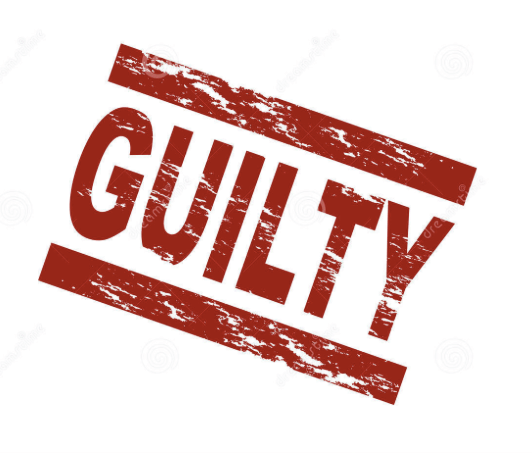A ban on the growing of GMO crops by Maui County voters by a scant 1077 votes—less than .5 percent of the total—will result in a protracted legal fight.
Within hours of the announcement of the final tally, Monsanto, which employs more than 1000 people on Maui, Molokaʻi and Oʻahu, announced it intends to file a challenge the law. (Here is the bill.)
If upheld, this initiative will result in a ban will have negative consequences for our employees and operations, and for hundreds of families, businesses, fellow farmers, home gardeners and others in our community. To protect our employees and farms, and in support of thousands of local residents who opposed this initiative, Monsanto plans to file a lawsuit challenging the legality of this harmful ban.
“While we understand that people of Maui County have concerns about GMOs, we are confident in the safety of our products and our practices that have been reviewed and approved by federal and state agencies,” said Monsanto Hawaiʻi Business and Technology Lead vice president John P. Purcell in a statement.
“To protect our employees and farms, and in support of thousands of local residents who opposed this initiative, Monsanto plans to file a lawsuit challenging the legality of this harmful ban,” said Purcell in an email statement.
While anti-GMO activists and concerned citizens reveled in the narrow victory, many scientists farmers and their families expressed outrage about what they believe is a sloppy conceived law. Rhonda Bode Stoltzfus, a Northern California native with a degree in Horticulture from Iowa State University, who is also a master bee keeper and Iowa fruit farm owner on sabbatical in Hawaii, outlined the problems she sees with the law in a blog post Wednesday.
As of November 5, 2014, that Bt sweet corn is now illegal in the County of Maui. If you choose to grow it anyway, by Friday you could be in jail for the next year and owe almost $100,000 in fines.
This goes for the Rainbow papaya (or any GM crop) as well. The Rainbow papaya is the fruit developed by Dr. Gonsalves at the University of Hawaii. Its claim to fame is its ability to fend off the dreaded Papaya Ringspot Virus. There is no more disease-free papaya allowed in Maui County.
Stoltzfus identified at least four problems with the law likely to be the target of a legal challenge.
- Section 2 is a long list of half-truths. Harold Keyser, Ph.D. did a point by point analysis of this section (here).
- Section 6.2 reads: “The passage of any proposed amendment or repeal of the Temporary Moratorium for any such GE Operation or Practice under this Section shall require: (1) County Council and citizens review of the EPHIS as detailed in Section 8.2.a. There is no Section 8.2.a.
- Section 7.3 outlines a slew of evaluations that need to be done by a grower, including transgenic contamination, horizontal gene transfers and the release of pesticides harmful to humans–although there is no evidence of any of these “problems” to date.
- Section 7.4: “In the second part of the process, the EPHIS shall be conducted by a non-biased professional consultant independent of GE industry ties with oversight by the JFFG…” There is no explanation for how this “non-biased” professional might be chosen by anti-GMO activists expressed confidence that they could be entrusted to chose an independent evaluator.
- “Imagine what an expert in the law will see when reviewing this initiative! noted Stoltzfus. “Since when are farmers guilty until proven innocent?”



When pseudo-science drives public policy we get bad public policy.
And the end result will be that Maui ends up having to pay a lot of lawyer fees to defend this stupid thing, and in the end will lose.
Well, like H.L. Mencken said, “For each problem, there is a solution that is clear, simple, and wrong.”
And in this case, there isn’t even a problem. Just mass hysteria by anti-science luddites, torches a-burnin.’
This piece of junk WILL get thrown out by the courts.
I sure hope not. Hawaii is such a gift to the world man should not be tampering with it by using such savage modern farming practices. There is no place for GMO’s or pesticides in Hawaii. Aloha Aina!
And there is no room for policy dictated by people don’t even understand the entire issue.
Do you understand the issue? Could you explain it, in its entirety please?
Basically it – a solution in search of a problem.
They just lose money. It’s the consumers who really lose.
Yeah, kind of like when the policy makers are paid by or associated with the big businesses who profit. Really? We eat food and hope it’s ok for us later? BTW, ask my friends in Kansas and Oklahoma how those new earthquakes are working out, you know because fracking isn’t bad for us either.
Mayor Arakawa got re-elected for the umteenth time and said this would cost the county millions of dollars. Now he needs to fire his county environmental director that was one of the main leaders of this drive!! His next target will be the sugar company, HC&S.
what do people think was grown on the farms before GM crops? Answer Sugarcane coffee etc that was drenched in pesticides. Do they plan to cut down all the GM papaya trees also? Then assume they would ban eating anything derived from GM products as well such as french cheese and wine that used GM enzymes after all how could they ban GM food production and still eat it? Has pot been legalized in Maui and no one told me – it seems like way too much smoking.
All joking aside it was a badly informed public that made this choice (just)
Unfortunately fear outsells facts at least 10 to one. Leaders (politicians) should know better than to enable fearmongering.